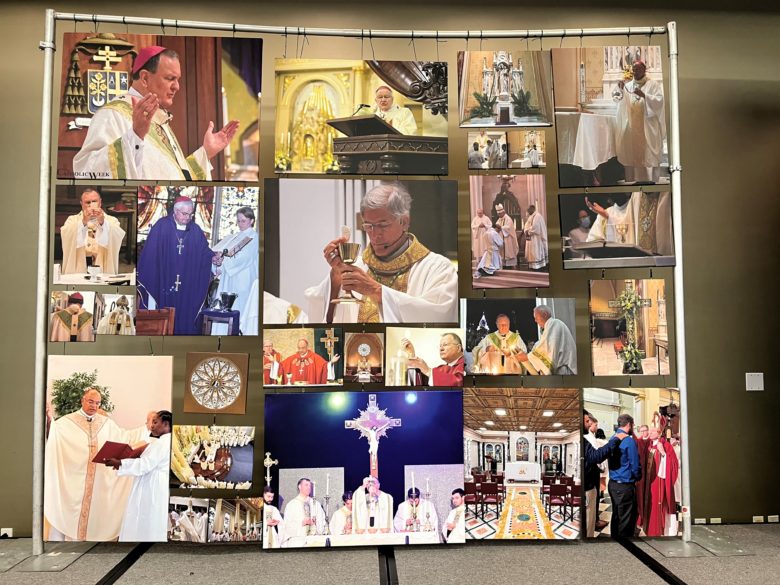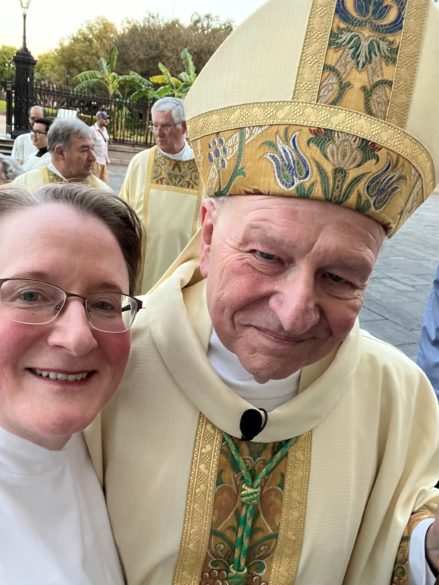From the Archives
By Mary Woodward
JACKSON – In this installment from the archives, I would like to do two commercials.
First, October is American Archives Awareness Month. Archive collections around the country feature treasures of historical documents, artifacts and visual images. More and more, digital-born images are becoming common place inhabitants of archive collections. This is creating new and challenging ways to manage our collective memory.
The Gulf South region of the United States loves its history and that is reflected in those states attention to maintaining archives. I am proud to say that the State of Mississippi has one of the finest archives in the entire country. Alabama and Louisiana have fine systems as well.
Mississippi State University is home to the papers of President and General Ulysses S. Grant; the University of Southern Mississippi has an excellent library and information science program that trains future archivists. The archives at Ole Miss house a fantastic blues collection along with the “Rowan Oaks” papers of William Faulkner and papers of many other Mississippi authors.


In terms of Catholic archives, our diocesan archives could be considered a national treasure because of its content dating back to Spanish Colonial times. Our documents on the Civil Rights Movement give witness to the church’s involvement in the struggle for justice during those most turbulent times.
Having visited the archives of the Archdioceses of Mobile and New Orleans, both have similar collections to ours spread throughout entire floors of buildings. The three collections put together capture the history and development of the region through the unique lens of the church dating back to the 17th century.
Archives are repositories of history, kept in a way that reveal history as it was and not as we think it was. Archives prevent us from being nostalgic and seeing the “good ole days” through the proverbial rose-colored glasses. Archives are living, breathing, organic insights into the soul of a community illuminating human nature in its most honest state. I like to call it the Kingdom of Memory.
What we do not often think about is each one of us is a walking archive collection. We keep family photos, birthday cards, love letters, diaries, etc., in our collections. Some of us have drawers neatly organized with our archive while others have refrigerators covered with a collection held together by eclectic magnets. But more importantly our hearts, minds and souls are filled with recollections and even scars of a lifetime. Each moment carefully tucked away in the repository of the kingdom of memory.
The second commercial is for the Diocesan Eucharistic Revival event being held Oct. 28-29, at St. Joseph Church in Gluckstadt. The U.S. bishops conference has created a three-year national Eucharistic Revival journey that began this past Corpus Christi and will culminate with a National Eucharistic Congress in Indianapolis in 2024.
Our diocesan event will include prayer, adoration, opportunities for the sacrament of penance, and conclude with the celebration of the Eucharist with Bishop Joseph Kopacz. This Eucharistic renewal journey naturally flows out of a desire by all of us to deepen our ongoing understanding of the Eucharist.
This past week, I participated in the national gathering of the Federation of Diocesan Liturgical Commissions, FDLC, which is a partner entity of the U.S. bishop’s conference engaged in formation of laity and clergy in fully implementing Sacrosanctum Concilium, the Constitution on the Sacred Liturgy.
Our region hosted the gathering in New Orleans and the theme was “Ars Celebrandi: Something More is Required,” which is taken from paragraph 11 of the Constitution. Ars celebrandi is simply translated as the art of celebrating.
The full paragraph is worth noting here: But in order that the liturgy may be able to produce its full effects, it is necessary that the faithful come to it with proper dispositions, that their minds should be attuned to their voices, and that they should cooperate with divine grace lest they receive it in vain. Pastors of souls must therefore realize that, when the liturgy is celebrated, something more is required than the mere observation of the laws governing valid and licit celebration; it is their duty also to ensure that the faithful take part fully aware of what they are doing, actively engaged in the rite, and enriched by its effects.
As part of the environment committee, we created a mosaic of ars celebrandi moments in liturgy featuring our region’s metropolitan archbishops and our own Bishop Kopacz. A highlight of the conference for me was to be able to serve Mass in St. Louis Cathedral as the miter bearer for Archbishop Gregory Aymond. I am grateful for this honor and will certainly file it in my kingdom of memory.
During the Mass in the cathedral, I reflected on paragraph 11 and how much more is required of all of us in understanding the great gift of the Eucharist. Do we really understand the communal nature of worship and the importance of the postures and actions of liturgy as the Body of Christ? Do we know what actually is happening in the sacred mysteries when heaven and earth meet on the altar?
Throughout the next two years in tandem with our synodal encounter journey, we will strive to offer “something more” in an effort to profoundly increase our understanding of these questions. Please join us Oct. 28-29 in Gluckstadt and if you are not able to be there physically for this inspiring event, join us through prayer.
(Mary Woodward is Chancellor and Archivist for the Diocese of Jackson.)
